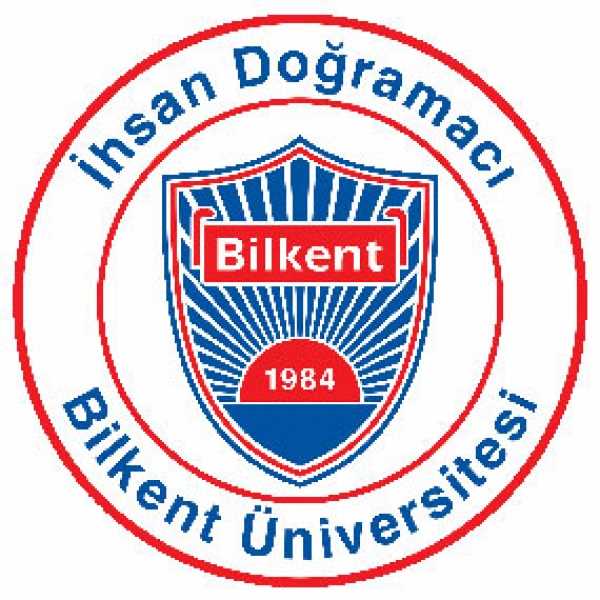Ihsan Dogramaci Bilkent University

| University Type | Private University |
|---|---|
| City | Ankara |
| Address | 06800 BİLKENT |
| Website | http://www.bilkent.edu.tr |

| University Type | Private University |
|---|---|
| City | Ankara |
| Address | 06800 BİLKENT |
| Website | http://www.bilkent.edu.tr |
About Us
Bilkent University was founded on October 20, 1984 by İhsan Doğramacı, through the joint resolution of İhsan Doğramacı Education Foundation, İhsan Doğramacı Science and Research Foundation and İhsan Doğramacı Health Foundation. The establishment of this private university was later approved by an act of Parliament. The aim was to create a center of excellence in higher education and research. The name “Bilkent”‘exemplifies the founder’s aim, since it is an acronym of “bilim kenti” in Turkish for “city of science and knowledge.”
It had long been an objective of the founder to establish a private university distinguished by its high quality education and research. The founder, himself an academician by profession, had earlier contributed to the establishment of numerous public institutions of higher learning and served as rector of Ankara University, chairman of the Board of Trustees of the Middle East Technical University and founder and first rector of Hacettepe University.
Preparations for Bilkent University had begun as early as 1967, with the purchase of a large tract of land to the west of Ankara. In the late 1970s and early 1980s the above mentioned foundations undertook construction, on the future site of Bilkent, of the buildings which now house administrative offices, the Faculty of Engineering, and the library. Construction of residences for academic staff, cafeterias, student dormitories, the Student Union building and various academic buildings followed in rapid succession.
Currently there are about 13,000 students in 9 faculties and 2 four-year professional schools. Among them are foreign students from different countries. With funds from the endowments provided by the founder, the university each year awards scholarships to 47% of the student body.
From the outset, the design of the university structure provided for student union representatives to be voting members of the administrative committees of various schools, as well as of the University Senate. Beginning in the second year of instruction, the practice of student evaluation of courses and instructors, at the time not a common practice in Turkey, was instituted.
To promote the enrichment of teaching and research programs, Bilkent University entered into collaborative projects and exchange programs with many universities abroad. Bilkent has student exchange agreements with universities from countries such as Australia, Japan, Italy, Sweden, Switzerland, the United Kingdom, Canada and the United States of America.
The Career Center, another service established at the incentive of Bilkent’s founder early in the University’s development, helps final-year students to acquire the skills necessary to apply successfully for a job. The Center arranges interviews between representatives of major corporations and students seeking employment.
The faculty is comprised of an academic staff from around 40 different countries. Most of them were working in prominent universities in North America and Europe when they received offers from Bilkent University. According to ISI Citation Indexes, Bilkent ranks high in Turkey and internationally in number of published papers per faculty member.
Bilkent University ranks 28th in Times Higher Education’s 100 Under 50 list of the world’s best young universities.
| College or Specialization | Eduaction Language |
|---|---|
| Architecture | - |
| Communication and Design | - |
| Fine Arts | - |
| Graphic Design | - |
| Interior Architecture and Environmental Design | - |
| Urban Design and Landscape Architecture | - |
| Management | - |
| Economics | - |
| International Relations | - |
| Political Science and Public Administration | - |
| Psychology | - |
| Computer Engineering | - |
| Electrical and Electronics Engineering | - |
| Industrial Engineering | - |
| American Culture and Literature | - |
| Archaeology | - |
| English Language and Literature | - |
| Philosophy | - |
| Chemistry | - |
| Mathematics | - |
| Molecular Biology and Genetics | - |
| Physics | - |
| Music | - |
| Computer Technology and Information Systems | - |
| Tourism and Hotel Management | - |
| College or Specialization | Eduaction Language | |
|---|---|---|
| Archaeology (MSc.) | - | |
| Business Administration (MSc.) | - | |
| Conference Interpreting (MSc.) | - | |
| Economics (MSc.) | - | |
| Energy Economics | Policy and Security (MSc.) | - |
| History (MSc.) | - | |
| Interior Architecture and Environmental Design (MSc.) | - | |
| International Affairs and Public Policy (MSc.) | - | |
| International Relations (MSc.) | - | |
| Law and Economics (Without Thesis) (MSc.) | - | |
| Private Law and Public Law (With Thesis) (MSc.) | - | |
| Media and Design (MSc.) | - | |
| Media and Visual Studies (MSc.) | - | |
| Music (MSc.) | - | |
| Philosophy (MSc.) | - | |
| Political Science (MSc.) | - | |
| Psychology (MSc.) | - | |
| Turkish Literature (MSc.) | - | |
| Curriculum and Instruction (MSc.) | - | |
| Curriculum and Instruction with Teaching Certificate (MSc.) | - | |
| Teaching English as a Foreign Language (MSc.) | - | |
| Architecture (MSc.) | - | |
| Chemistry (MSc.) | - | |
| Computer Engineering (MSc.) | - | |
| Electrical and Electronic Engineering (MSc.) | - | |
| Industrial Engineering (MSc.) | - | |
| Materials Science and Nanotechnology (MSc.) | - | |
| Mathematics (MSc.) | - | |
| Mechanical Engineering (MSc.) | - | |
| Molecular Biology and Genetics (MSc.) | - | |
| Neuroscience (MSc.) | - | |
| Physics (MSc.) | - | |
| Business Administration (Ph.D.) | - | |
| Economics (Ph.D.) | - | |
| History (Ph.D.) | - | |
| Interior Architecture and Environmental Design (Ph.D.) | - | |
| International Relations (Ph.D.) | - | |
| Private Law and Public Law (Ph.D.) | - | |
| Music (Ph.D.) | - | |
| Political Science (Ph.D.) | - | |
| Psychology (Ph.D.) | - | |
| Turkish Literature (Ph.D.) | - | |
| Curriculum and Instruction (Ph.D.) | - | |
| Chemistry (Ph.D.) | - | |
| Computer Engineering (Ph.D.) | - | |
| Electrical and Electronic Engineering (Ph.D.) | - | |
| Industrial Engineering (Ph.D.) | - | |
| Materials Science and Nanotechnology (Ph.D.) | - | |
| Mathematics (Ph.D.) | - | |
| Mechanical Engineering (Ph.D.) | - | |
| Molecular Biology and Genetics (Ph.D.) | - | |
| Neuroscience (Ph.D.) | - | |
| Physics (Ph.D.) | - |
Tuition Fees
Undergraduate Students
2018 – 2019 ACADEMIC YEAR FEES
The annual tuition fee is paid in two equal installments, before fall and spring semester course registrations, by the deadline in the academic calendar. Newly admitted students pay the fall semester installment during the registration period.
The tuition fee can be paid at branches of Garanti Bank, İş Bank and Yapı Kredi Bank through their payment teller screen menu (refer to Bilkent Üniversitesi Öğrenci Harç Tahsilat Hesabı). Banks do not charge any transfer fees for these transfers.
Tuition fee for the 2018-2019 academic year (8% VAT included):
The fee can be divided into four installments through the contracted banks.
Any increases in enrolled students’ annual tuition fees for following years are limited to the increase in the consumer price index of Turkey (TÜFE).
The tuition fee for the 2018-2019 academic year (8% VAT is included):
The tuition fee can be paid in two equal installments by the due dates before the fall and spring semesters.
Tuition fees can be paid in Turkish Lira (TL) only within Turkey. If students prefer to make a payment in Turkish Lira instead of USD, the USD effective exchange rate of the Central Bank of Turkey on date of payment will be used to calculate the TL amount.
Students may also wire transfer the tuition fee from their home country to the bank account provided below. Please note that students should have their full name written on the bank receipt and that this receipt needs to be submitted to the Registrar’s Office.
Graduate Students
The annual tuition for the 2018-2019 academic year is 14,500 USD for international students (including value-added tax).
This site aims to inform prospective graduate students about the many outstanding graduate study opportunities at Bilkent University.
In line with our founding motto, “excellence in teaching and research,” Bilkent University believes graduate education plays a central role in a research university. As such, from the beginning Bilkent has allocated, and continues to devote, the scholarships and resources necessary to create a fertile environment for advanced study and research.
